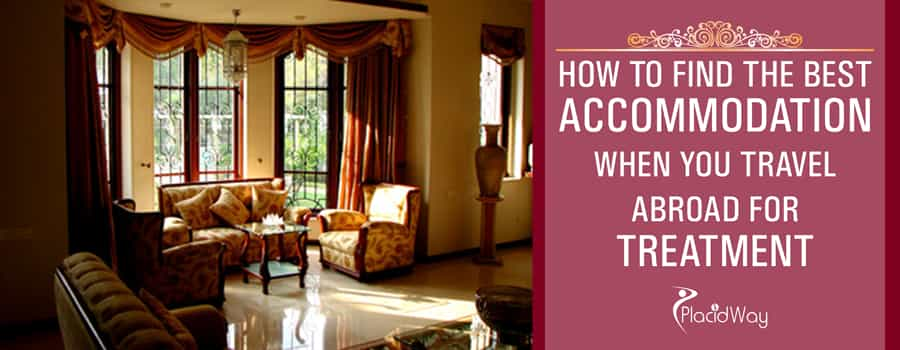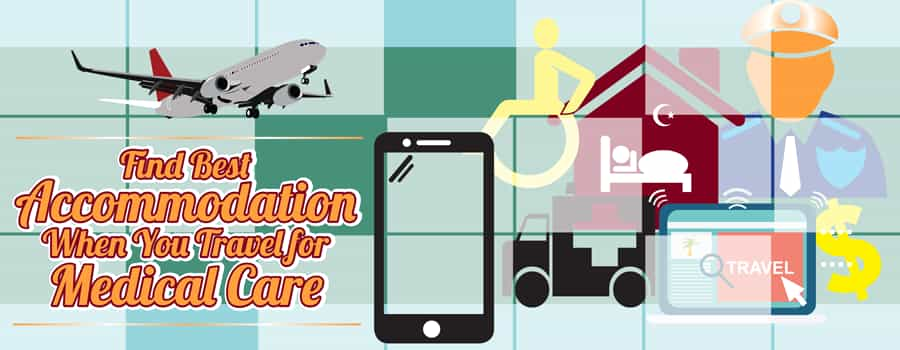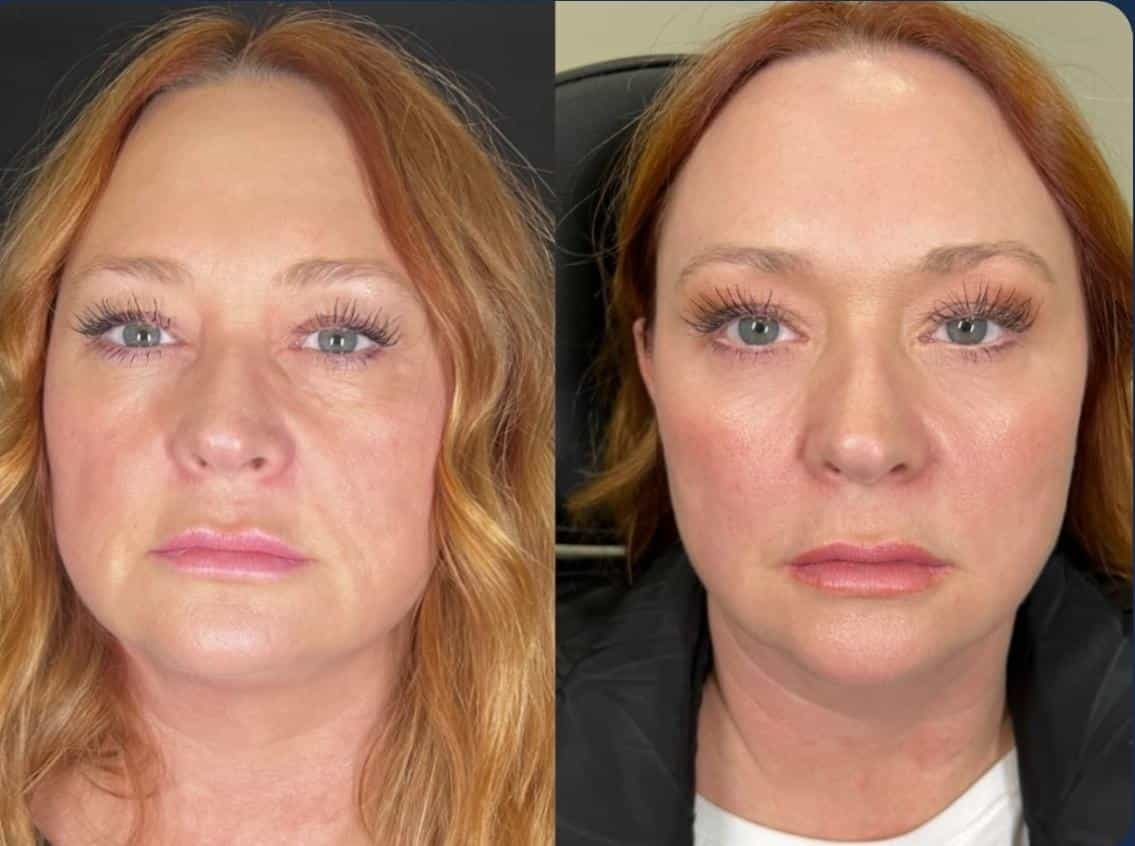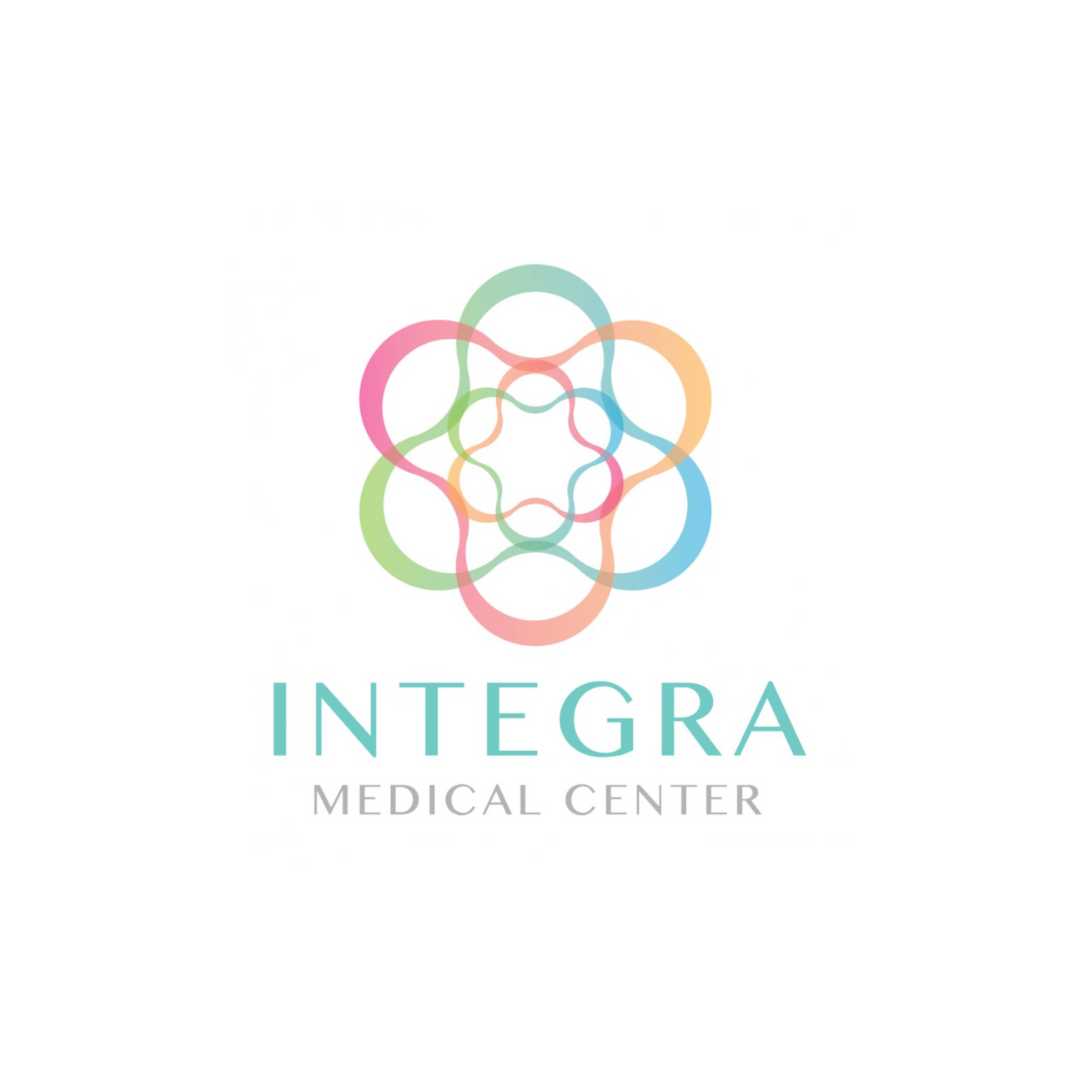
How to find the best accommodation when you travel abroad for treatment
Patients who consider traveling abroad for treatment have legitimate, safe options, and hundreds of those who have returned from successful treatment overseas provide overwhelmingly positive feedback.
When it comes to healthcare, people have different reasons for traveling abroad:
1. depending upon the country and type of treatment, the cost savings can be significant;
2. experienced health travelers know that facilities and customer service in treatment centers abroad often equal or exceed those found in their home country;
3. some procedures and meds are simply not allowed / available in their country;
4. the waiting periods are shorter abroad, and some patients are willing to pay to get out of pain than to suffer the frustration of waiting for far-future appointments;
5. medical travelers appreciate the flexibility at the hospitals abroad, where they are often encouraged to spend extra time in the hospital post-operation;
6. although traveling abroad for medical care can be challenging, many patients also enjoy the trip from the recreational perspective, taking time to relax and visit beautiful places.
The "art" of choosing the best accommodation abroad
Most people who opt for medical tourism choose to travel with a friend, relative or partner. They will need a place to stay, as well as have some activities lined up to keep them occupied when not visiting the patient at the hospital. As you may need accommodation for a few days, someone traveling with you will also need accommodation for the duration of the visit, and it should be close to the hospital so that they can visit you easily.
When choosing the right way to stay, pay attention to the accommodation level. The standardized star marking follows the international criteria and applies to hotels, pensions, private rooms, campings etc.
1. Safety first
- Take a careful look at the security situation in the country and/or city you'll be visiting.
- Don't just look at rates and amenities - pay close attention to location as well: is it safe to walk around after dark?
- Find out about the hotel's own security measures. Call ahead and ask whether the front desk is staffed 24 hours a day, if there are security guards or surveillance cameras.
- Women-only accommodations may be worth looking into for female patients who travel solo and are worried about safety.
- Don't accept a room on the ground floor if you can avoid it. Many safety experts recommend staying between the third and sixth floors.
2. Find a good hotel
The first aim should be to find a top establishment, within your budget, then to try to get it as cheap as possible. Once you know where you want to stay, always check what the hotel offers and whether it has any special deals. It may offer early booking promotions or special deals that comparison sites miss. Use comparison websites to confirm the deal you've found is the best one, and uncover secret hotel mega-bargains on websites like hotwire.com. For special cases, you should also find out if the hotel has amenities such as bathrooms with disability access and staff trained to deal with medical patients.
3. Look out for taxes
Many countries charge a tax per day for a hotel room. Some hotel websites hide the true cost of a stay until the final booking page, so you should always check. Also, never assume one price fits all when it comes to hotel rooms - the same hotel can be sold by different places at different prices.
4. Try a medical travel package
Don't ignore medical travel packages - they can undercut DIY online-booked separate flights and hotels. They also include all the necessary inpatient hospital care and outpatient services to restore your health, as well as dditional medical specialty services. PlacidWay provides access to different types of packages to cover the needs of all patients. Check this link and do not hesitate to contact us if you need more information. Also, keep in mind that if you are not satisfied with your accommodation, taking a complaint further may not apply to you if you booked a package.

5. Rent someone's spare room or apartment
Spare room and apartment rental sites offer cheap short-term stays in private homes worldwide. Crashing in spare rooms often beats hotel prices. On the downside, rooming with strangers can be a lottery. Sometimes check-in times are restricted or email replies slow, and you also have to think about your safety.
6. Use mobile apps
Make sure you have a cell phone that will work throughout your trip. Among others, you can use it to find hotels on virtual maps in the area you select, and even to make reservation in advance by using the applications created by certain hotels in order to improve the communication with their clients.
7. If you travel with disabilities...
Some countries have nondiscrimination laws that help to protect travelers with disabilities, while others do not. Preparation before you travel abroad can help ensure that your planned destination will be accessible, safe and enjoyable. Learn about planned stops and ask questions about services available – assistance at the airport, your hotel, on public transportation and at certain travel sites. Make sure those who will assist you will clearly understand your needs, but understand that your needs may not be accommodated in all locations.
8. Travel smart
The additional physical activity undertaken during travel may be exhausting, and sudden changes in diet and climate can have serious health consequences for the unprepared medical tourist. If you take prescription medicine, do your research to make sure it’s legal to bring into your host country. Be sure you have enough to last the duration of the trip, or that you can fill your prescription in your host country.
PlacidWay is a US-based medical tourism company with presence in over 35 countries worldwide. We help you explore the global health possibilities, and give you the tools to customize the information to your specific needs. Finding good accommodation abroad can be a real challenge. You need to know what are the choices you have, based on your specific health condition, budget requirements or destination considerations. We provide you the informational resources needed to evaluate your global options.
Consider the level of health care available and whether your health needs and any emergencies can be met. We can give you more information, do not hesitate to contact us!












.png)

.png)


Share this listing